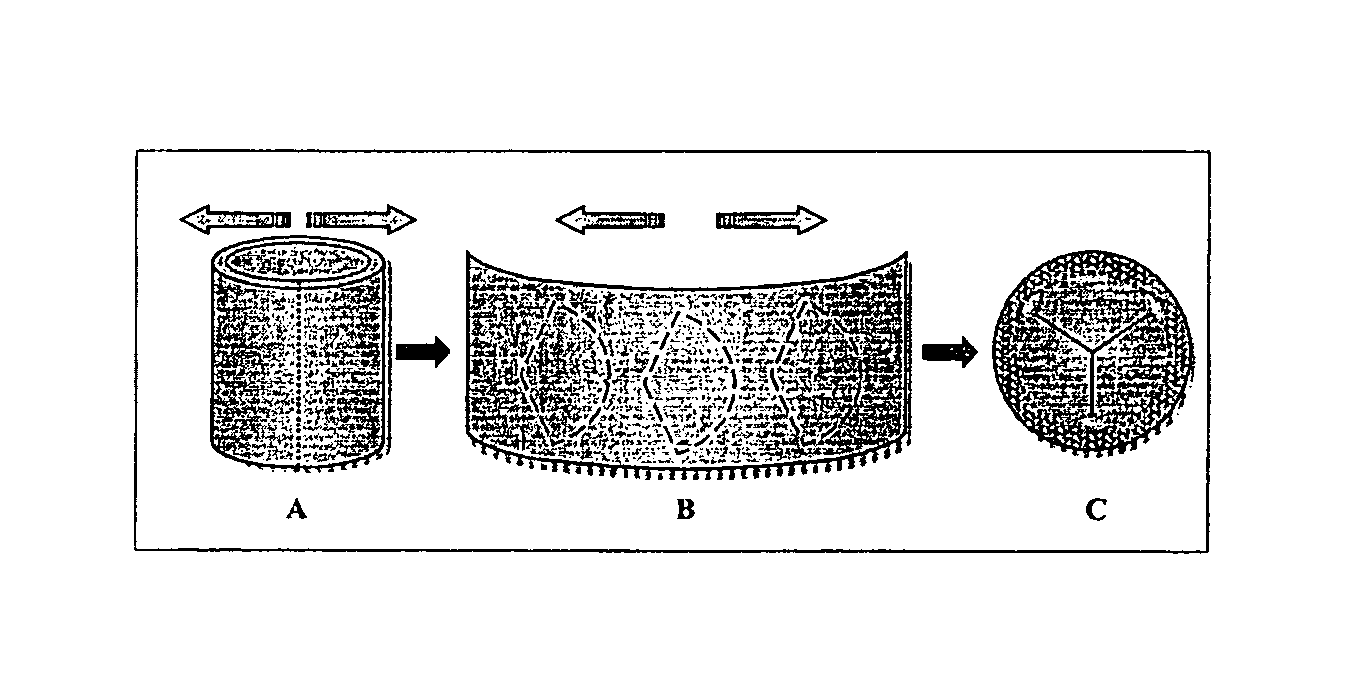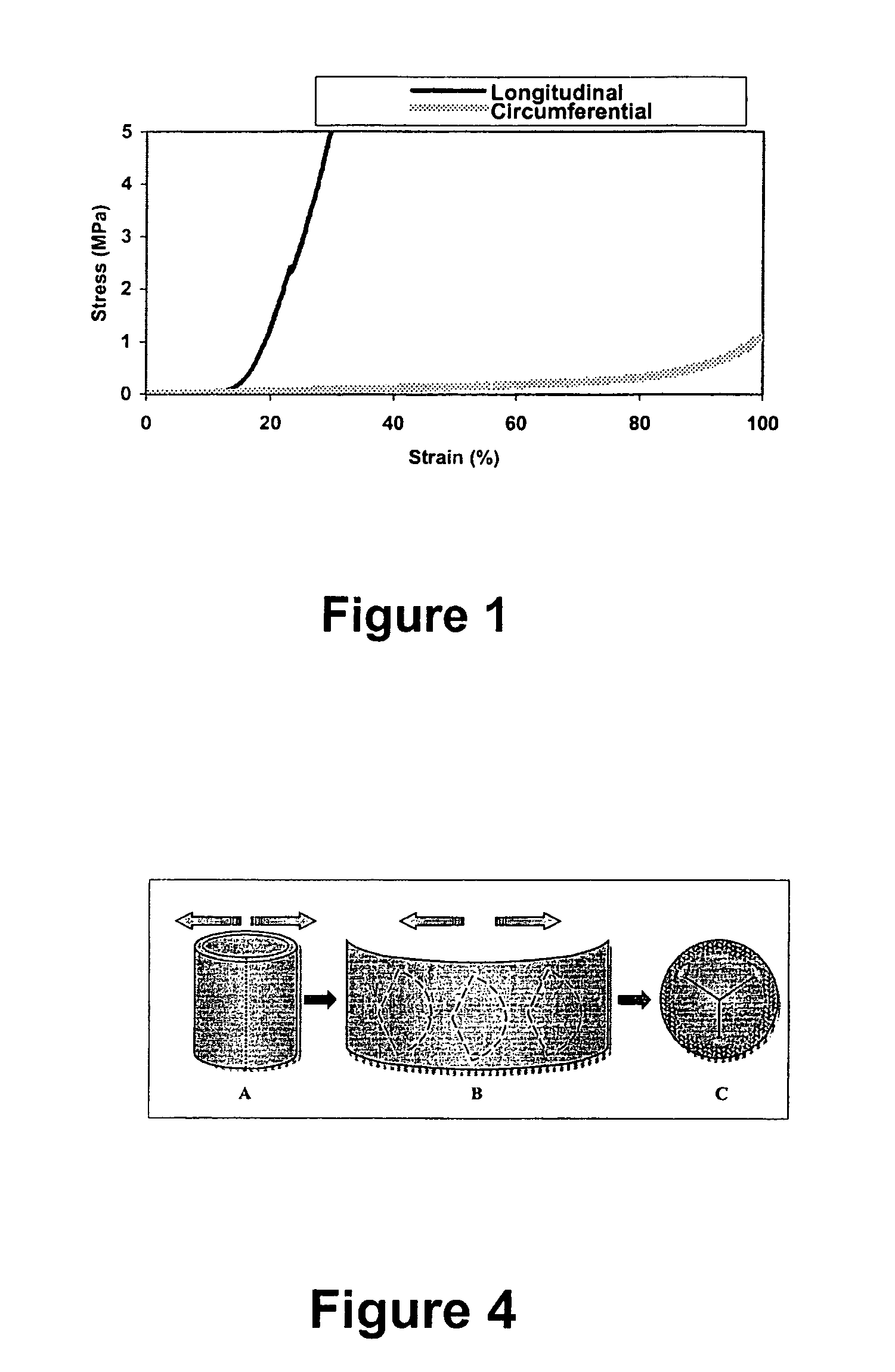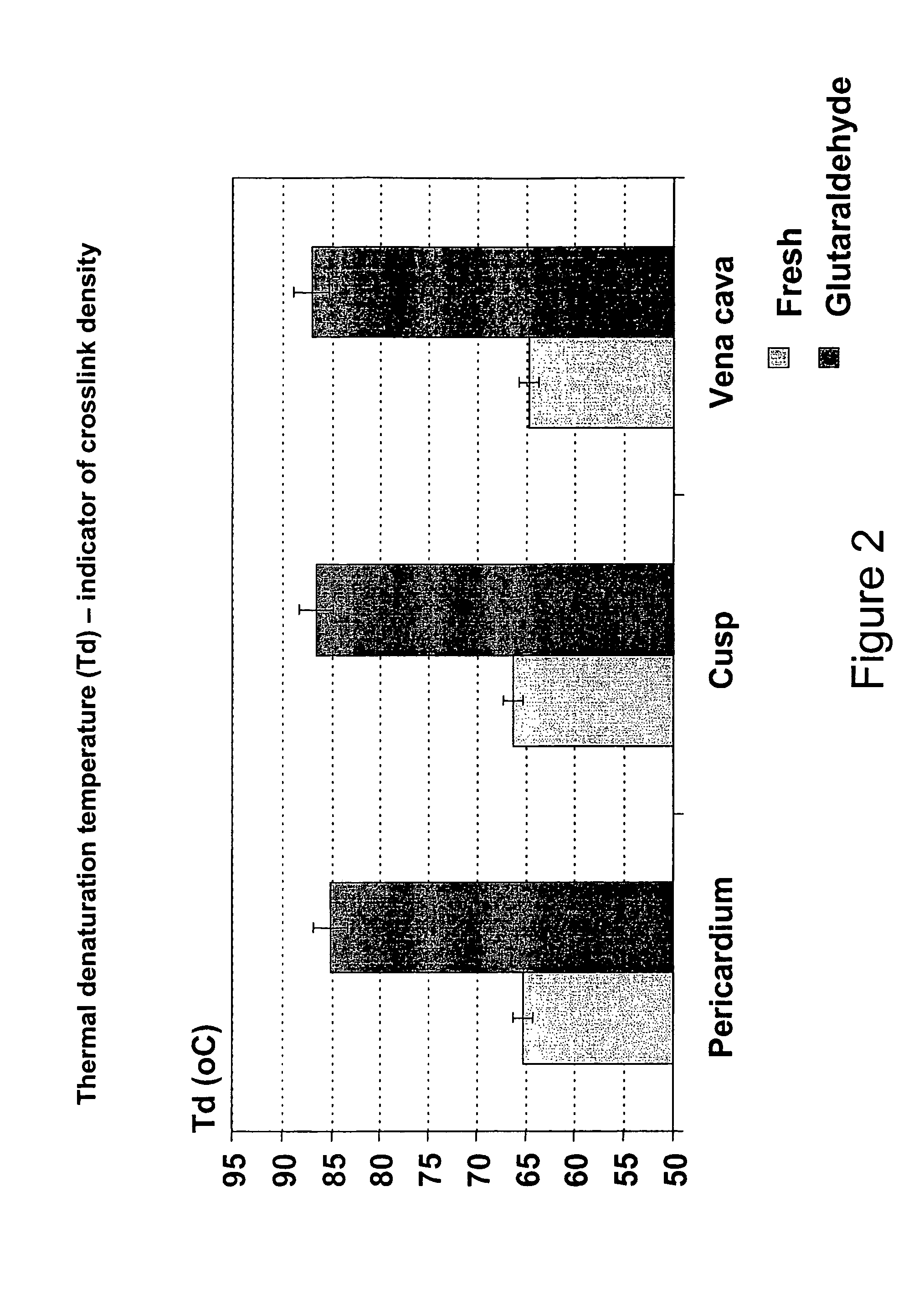Tissue material process for forming bioprosthesis
a tissue material and bioprosthesis technology, applied in the field of tissue material process for forming bioprosthesis, can solve the problems of increasing the risk of serious hemorrhage for users, the longest durability of available replacement heart valves for mechanical valves, and the danger of continuous use of anticoagulants, so as to improve the mechanical properties of bioprosthesis and the effect of increasing the elasticity of anisotropic materials
- Summary
- Abstract
- Description
- Claims
- Application Information
AI Technical Summary
Benefits of technology
Problems solved by technology
Method used
Image
Examples
example 1
Tissue Collection and Characterization
[0054]Porcine inferior vena cava was collected from a slaughterhouse and placed in ice-cold saline. The vena cava was manually cleaned of adherent tissues, followed by opening the veins using a longitudinal incision. After rinsing the vena cava material in fresh saline, the tissue was fixed for 7 days at room temperature in 0.6% glutaraldehyde (GA) prepared in 50 mM HEPES buffered saline at pH 7.4. The fixative was changed with fresh GA solution following an initial 24-hour fixation interval.
[0055]Glutaraldehyde fixed vena cava was cut with a template to obtain samples approximately 40 mm long and 5 mm wide. Six samples were obtained and examined in both a longitudinal direction (parallel to the axis of the blood flow) and in a circumferential direction (perpendicular to blood flow). Stress and strain tests were performed at room temperature on a Vitrodyne V-1000 mechanical tester (Lifeco Inc, Burlington, Vt.) equipped with a 10-pound load cell....
example 2
Thermal Denaturation (Td) Profiles Assessed by Differential Scanning Calorimetry (DSC)
[0056]Td indicates the amount of energy absorbed by a sample. In the case of connective tissues, Td represents the temperature at which native collagen molecules unravel. This process leads to protein denaturation and is recorded as a peak maximum for three different tissues types in FIG. 2. Fresh, native tissues exhibit a Td of around 65° C., while chemically cross-linked tissues require a larger amount of heat to denature, and therefore their Td increases proportionally to the number of cross-links.
[0057]Porcine vena cava tissue (native and GA fixed, as described above) was rinsed in saline and 2 mm2 samples were cut and hermetically sealed in Differential Scanning Calorimetry (DSC) aluminum pans. Samples were heated at a rate of 10° C. / min, from 25° C. to 110° C. and the temperature of thermal denaturation (Td) for each sample was recorded on a Perkin Elmer DSC 7 machine.
[0058]Fresh vena cava ex...
example 3
Comparison of Elastic Properties of Various Tissues
[0061]Porcine vena cava tissue, porcine aortic cusps, and bovine pericardial tissue were prepared and subjected to stress / strain tests as disclosed above in Example 1. FIG. 3A sets forth stress / strain data obtained for both GA-fixed and fresh porcine aortic cusps in both the radial and circumferential directions. The circumferential direction of an individual cusp runs parallel to the aortic wall, and the radial direction runs from the center of the cusp to the edge of the aorta. FIG. 3B sets forth the data obtained for GA-fixed pericardium, and FIG. 3C sets forth the data obtained for GA-fixed porcine vena cava in both the longitudinal (with blood flow) direction and circumferential (perpendicular to blood flow) direction.
[0062]As seen in reference to FIG. 3C, GA-fixed vena cava is anisotropic, exhibiting greater elasticity in the circumferential direction than in the longitudinal direction. Further, in comparison to pericardial ti...
PUM
 Login to View More
Login to View More Abstract
Description
Claims
Application Information
 Login to View More
Login to View More - R&D
- Intellectual Property
- Life Sciences
- Materials
- Tech Scout
- Unparalleled Data Quality
- Higher Quality Content
- 60% Fewer Hallucinations
Browse by: Latest US Patents, China's latest patents, Technical Efficacy Thesaurus, Application Domain, Technology Topic, Popular Technical Reports.
© 2025 PatSnap. All rights reserved.Legal|Privacy policy|Modern Slavery Act Transparency Statement|Sitemap|About US| Contact US: help@patsnap.com



